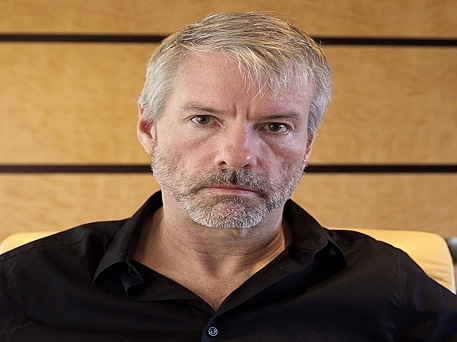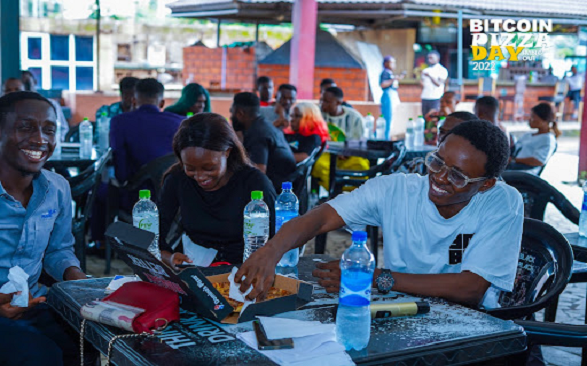Over half of the top 100 banks (by assets under management) have invested in crypto and blockchain-related companies and solutions in 2021, reports Blockdata. This is as of July 2021. The banks making these investments do so by participating in some of the biggest funding rounds for crypto and blockchain-related solutions out there.
In coming up with this list of crypto-and-blockchain investing banks, note that determining how much money has been invested by any particular bank is difficult. This is for three major reasons: (1) these investing banks do not participate in funding rounds alone but with multiple investors or other investors; (2) these investing banks do not necessarily invest directly but indirectly; (3) crypto adoption—particularly in the banking and financial system—is still facing regulatory hurdles, thus information about banks investing in this emerging innovation is not really out there.
Monetary value invested so far in crypto and blockchain-related solutions
Based on the value of investments, Standard Chartered leads with up to $380 million in 6 rounds. This is followed by BNY Mellon with up to $320.69 million in 5 rounds. Citigroup comes third with up to $279.49 million in 9 rounds. UBS Group and BNP Paribas follow with investments of up to $266.2 million in 5 rounds and $236.05 million in 9 rounds respectively.
Volume of investments so far in crypto and blockchain-related solutions
But based on the volume or number of investments, Barclays leads with 22 investments in various crypto and blockchain-related companies and solutions. Citigroup comes second with its number of investments at 9 currentry. And Goldman Sachs and BNP Paribas, tied in third place, currently stand at 8 each.

The crypto and blockchain-related companies and solutions banks are investing in
According to a report by the Blockdata, the crypto and blockchain companies and solutions the top 100 banks by assets under management are investing in and the rounds are as follows:
Barclays
Barclays, which comes first based on volume of investment, has invested in Wala, RealBlocks, Safello, Safello, Wave, Avenews-GT, Chainalysis, Crowdz, Everledger, Evernym, Crowdz, INVIOU, Photocert, Post-Quantum, SendFriend, R3, R3, SendFriend, Fnality International, ResonanceX, The Sun Exchange, and Chroma.
Citigroup
Citigroup, second to Barclays, has invested in BUCK, Chain, SETL, Axoni, Axoni, Axoni, Cobalt, Digital Asset, HQLAx, R3, R3, Komgo, Symbiont, and Komgo.
Goldman Sachs
Goldman Sachs, in a tie with BNB Paribas, has invested in Axoni, Axoni, HQLAx, R3, Coin Metrics, Circle, Blockdaemon, and Veem. And BNP Paribas has invested in Digital Asset, HQLAx, METRON, METRON, R3, R3, TradeIX, Komgo, and Token.
The bank with the biggest investment by monetary value has one of the lowest investments by volume of investment
Interestingly, Standard Chartered, which has the biggest investment cheque ($380 million), has invested in 6 crypto and blockchain-related companies and solutions only.
This is in contrast to Barclays’s 22.
The crypto and blockchain-related companies and solutions Standard Chartered is currently banking on are Ripple, Cobalt, Dianrong, Dianrong, Metaco, and Linklogis.
The top 3 crypto and blockchain-related companies enjoying the most investments and what they do
The two terms “blockchain” and “DLT” are often used interchangeably and to understand blockchain, it’s important to understand Distributed Ledger Technology (DLT)—the framework that underpins it.
Of the companies and solutions invested in, powering trust with the use of blockchain/distributed ledger technology (DLT)[efn_note]
Blockchain technology enables everyone involved in a transaction to know with certainty what happened, when it happened, and confirm other parties are seeing the same thing without the need for an intermediary providing assurance, and without a need to reconcile data afterwards.
DLT is a decentralized database managed by multiple participants, across multiple nodes. Blockchain is a type of DLT where transactions are recorded with an immutable cryptographic signature called a hash. The transactions are then grouped in blocks and each new block includes a hash of the previous one, chaining them together, hence why distributed ledgers are often called blockchains. (Credit: R3) [/efn_note] is the central dominating idea.
R3 is currently the platform that have been invested in the most in terms of number of investments. R3 is a leading provider of enterprise technology and services, harnessing what it calls the Power of 3—R3’s trust technology, connected networks, and regulated markets expertise—to drive market innovation and improve processes in banking, capital markets, global trade and insurance.” Corda and Conclave are R3 solutions.
Second to R3 is Axoni. Axoni leverages distributed ledger technology to provide secure, multi-party data infrastructure. With its blockchain networks), distributed applications, enterprise infrastructure, and workforce automation, Axoni is “overhauling global capital markets infrastructure”.
Third is Fnality International. From being a Distributed Ledger Technology (DLT) research project, Fnality International is now a consortium of financial institutions exploring how blockchain and DLT could use tokenised cash assets to settle securities trades. Known as the Utility Settlement Coin (USC) Project, its goal is to “create a peer-to-peer digital cash asset to settle tokenised transactions with finality”.
Notable are Komgo and Digital Asset. Komgo is a company that powers trust between parties and help companies and financial institutions digitalize complex workflows and transactions. On the other hand, Digital Assets enables global economic network enables companies and institutions get to market faster and unleash web-paced innovation for all industries, including financial services, health, security, and supply chain.
What could this Blockdata report mean to crypto asset buyers?
Blockchain/distributed ledger technology (DLT)
Discover more from Crypto Asset Buyer
Subscribe to get the latest posts sent to your email.



